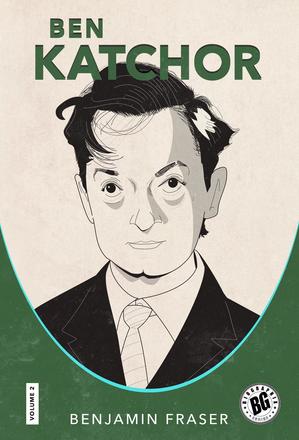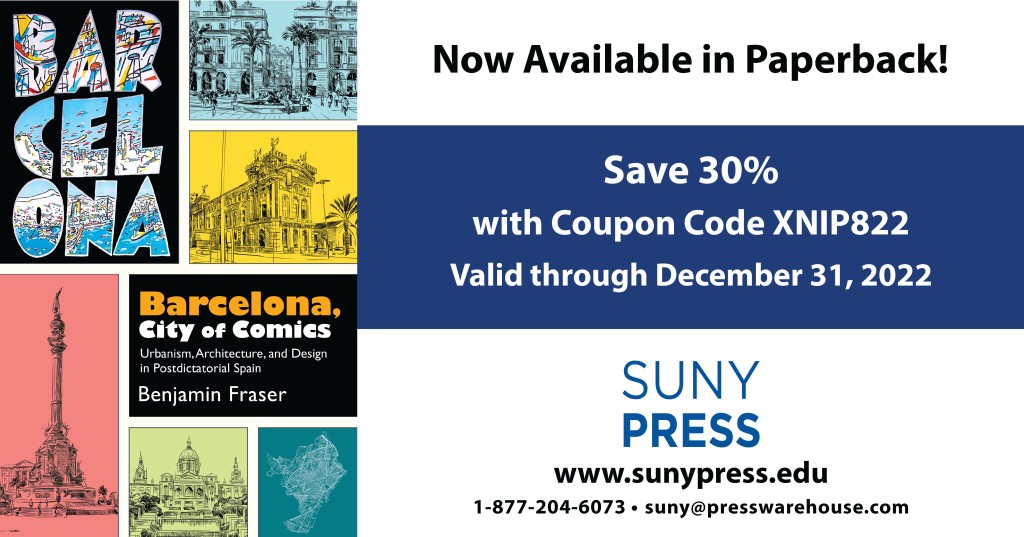https://www.upress.state.ms.us/Books/B/Ben-Katchor3
Affordable paperback @ $20.00!! [actually only 10.00 from Nov. 1-10 2023, all UPM books are half price]

The first book dedicated to exploring the comics of Ben Katchor
Description
The recipient of a 2000 MacArthur fellowship, Ben Katchor (b. 1951) is a beloved comics artist with a career spanning four decades. Published in indie weeklies across the United States, his comics are known for evoking the sensorium of the modern metropolis. As part of the Biographix series edited by Frederick Luis Aldama, Ben Katchor offers scholars and fans a thorough overview of the artist’s career from 1988 to 2020.
In some of his early strips published in the 1980s in the New York Press and Forward, Katchor introduced one of his quintessential characters, Julius Knipl, a real estate photographer. By crafting Knipl as an urban flâneur prone to wandering, Katchor was able to variously demonstrate his absurd humor and linguistic whimsy alongside narratives packed with social critique. Three volumes collecting the Julius Knipl strips, Julius Knipl, Real Estate Photographer; Cheap Novelties: The Pleasures of Urban Decay; and The Beauty Supply District, helped cement Katchor as a distinguished comics artist and social commentator. Later works, such as The Cardboard Valise, Hand-Drying in America, and The Dairy Restaurant, have diversified his comics legacy.
Rooted in close analyses of the artist’s numerous series and collections, each chapter in Ben Katchor is dedicated to a distinct aspect of the urban experience. Individual pages from Katchor’s work depict not only the visual, but also the auditory, tactile, and olfactory dimensions of life in the city.
Reviews
“Through astute close readings and by framing Ben Katchor’s work along a multisensory spectrum, urban studies scholar Benjamin Fraser presents a stunning and original perspective on Katchor’s graphic narratives.”– Jan Baetens, professor emeritus of cultural studies and comics at the University of Leuven
“As well as being a substantial engagement with a diverse set of works from an important, understudied comics artist, Ben Katchor presents a compelling approach to the analysis of those works. By combining a focus on Katchor’s use of the senses with analysis of the representation of the senses in his comics, Fraser has not only found a way of eliciting specific insights from Katchor’s strips, he has also sketched out an expanded approach to the sensory analysis of comics that can be applied to a wide range of works.”– Ian Hague, founder and director of Comics Forum and Reader in Graphic Narrative at the University of the Arts London
“Ben Katchor’s comics are filled with the same sensuousness, tactility, and humor of the urban worlds they depict. In this enthusiastic author study, Ben Fraser proves an expert guide through Katchor’s cityscapes, offering a vital introduction for readers new to the artist and a valuable reappraisal for those already familiar with his work. Organizing the book’s discussion around the senses of sight, hearing, touch, smell, and taste, Fraser affirms Katchor’s importance for so many vital themes in and beyond comics studies today: urban culture, multisensory reading, art and its commodification, and the centrality of community in the making of place.”– Dominic Davies, author of Urban Comics: Infrastructure and the Global City in Contemporary Graphic Narratives



